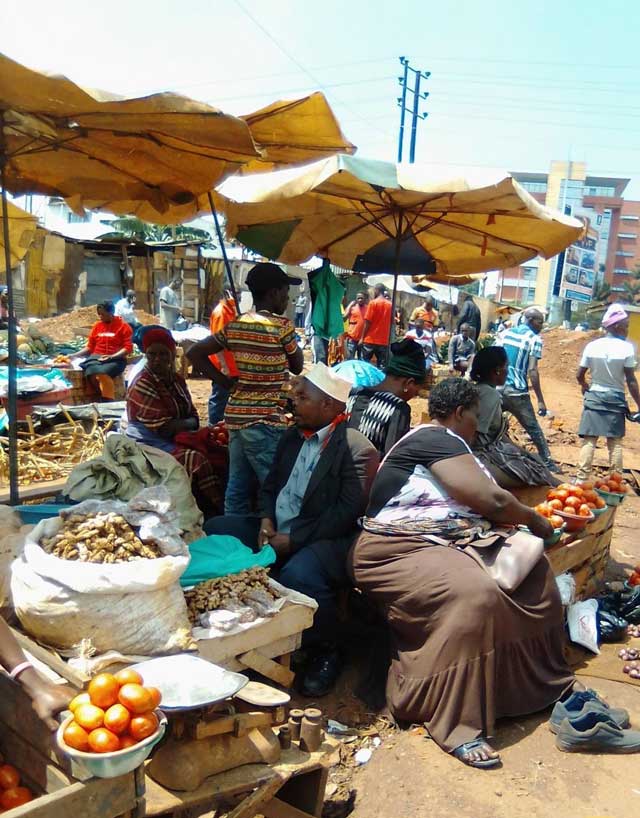
Kampala, Uganda | THE INDEPENDENT | Markets across Kampala have abandoned the standard operating procedures, that were set as a condition to allow them to operate amidst the COVID-19 threat.
Although city Markets had adapted to the guidelines, earlier during the lockdown, a number of them have abandoned the cause. They no longer enforce hand washing, sanitizing, or even limiting the number of people in the market, at a given time.
The complacency is visible in Nakawa and Kalerwe markets in the outskirts of Kampala, where the strings that were once used to enforce social distancing and control contact between vendors and customers have been removed allowing free entry and exit, a precursor for contact transmission of the virus.
The markets have also stopped enforcing the handwashing and removed some of the handwashing stations that were initially set up, even though Hand hygiene has been fronted as extremely important to prevent the spread of the COVID-19 the virus which is transmitted through respiratory droplets or contact. Hand Washing has been used over the years to interrupt the transmission of all viruses and bacteria causing common colds, flu, and pneumonia.
Julius Kibirige, the youth chairman at the Nakawa market says that due to the lack of resources like soap, some preventive methods such as hand washing can only be implemented in the morning.
While Nakasero Market maintains a temperature gun and handwashing points, the shopping area is also struggling to enforce physical distancing guidelines. Medical experts say that limiting face-to-face contact with others is the best way to reduce the spread of coronavirus disease and they encourage people to stay at least 6 feet-about 2 arms’ length- from other people.
Baker Kalinaki, the Nakasero market spokesperson says that the market can’t maintain physical distancing because of the limited space within which they operate. He says that instead, they have opted to emphasize the use of face masks to control droplets and aerosols.
Ronald Zibu, the chairman of Kasubi market says that market vendors are too complacent and many have already abandoned the use of facemasks, saying that the coverings are uncomfortable.
Susan Muwonge, a tomato vendor in Kalerwe market says that with no deaths being reported, the disease is no longer a cause for worry, and to them, the disease is comparable to a common cold, which is not life-threatening.
At the height of the lockdown, the Uganda Redcross Society implemented some preventive measures like handwashing and temperature taking at all Kampala’a major markets. Irene Nakasiita, the head of communications and public relations at Uganda Red Cross says that the humanitarian agency was forced to leave the markets due to the high costs attached.
“We managed the entrances for the first three months because it was an emergency but after that, we had to stop. However, we agreed with the market authorities and we left them all our equipment- the tents, handwashing stations, and thermometer guns so that they can operate the entrances themselves,” Nakasiita said.
To date, more than 760 COVID-19 cases have been confirmed in the country and according to mathematical modeling from Makerere University, the country is likely to record higher numbers of infected people due to the premature release of the lockdown.
Joseph Mugisha, the principal of the college of natural sciences and the principal investigator of the mathematical modeling says that due to early release of the lockdown and the big crowds of people in some places, Uganda could record as many as 10,000 cases of the disease.
“When people go to crowded places, the disease can easily spread. You get more sick people mixing with susceptible cases. If you took tests to crowded places like Kikuubo now, the results would shock you,” he said.
********
URN
 The Independent Uganda: You get the Truth we Pay the Price
The Independent Uganda: You get the Truth we Pay the Price



